Keynote speakers at NPS 19
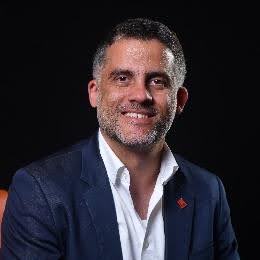
Microfluidics enables process intensification with laser induced cavitation and inertial ballistic
Prof. David Fernandez Rivas, University of Twente, The Netherlands
CV
David Fernandez Rivas obtained his PhD at the University of Twente UT (2012). Assistant professor (2014-2019), associate professor (2020-2021) and Professor (2021) in the Mesoscale Chemical Systems Group, UT.
David’s research interest and expertise are in the areas of microfluidics, transdermal drug delivery alternatives, solar-to-fuel cells, process intensification, acoustic cavitation and sonochemistry. In 2019, he obtained the European Research Council Starting Grant for his project BuBble Gun, aimed at penetrating microjets in soft substrates, towards controlled needle-free injections. David received the prestigious VIDI grant, from the Dutch Research Council in 2023. He has received several recognitions, such as the Young Sonochemist Award, given by the Japan Society of Sonochemistry (JSS) in 2011, the Pieter Langerhuizen Lambertuszoon Fonds prize (2016) awarded by the Royal Holland Society of Sciences and Humanities (KHMW), and elected as Engineer of the Year 2021, and the Prince Friso Award by the Royal Dutch Institute of Engineers (KIVI). His work in Public Outreach earned him the Stairways to Impact Award, granted by the Dutch Scientific Council, and the UT in the Media Award, both in 2021. He was elected to the Global Young Academy (2020) and the Young Academy Europe (2020), elected Secretary in 2023. In 2024, David was installed at the De Jonge Akademie (Dutch Young Academy), Royal Netherlands Academy of Arts and Sciences. David has co-authored over 60 reviewed journal papers and wrote the book Empathic Entrepreneurial Engineering. He is inventor of a patent commercialized by the spin-off BuBclean (2013) of which he is cofounder. He also founded FlowBeams, a spin-off from the University of Twente (2021) to valorize his research and second patent on needle-free injections. He was co-chair of the COST Action Greenering: Green Chemical Engineering Network towards upscaling sustainable processes, from the European Cooperation in Science & Technology (2019-2022). He also serves in the editorial board of several journals, such as Ultrasonics Sonochemistry, and Biomicrofluidics.
Abstract:
In the last decade, Process Intensification through microfluidics has proven its advantages in Chemical Engineering, with clear benefits when aiming for more sustainable and efficient ways to operate chemical processes. A growing number of companies have demonstrated that ‘‘large’’ equipments are not necessarily the only way to reach an economy of scale, and chemical engineers are more comfortable with scaling-down strategies. Our team has developed the BuBble Gun microfluidics platform to accelerate small liquid volumes with utilization potential in biomedical applications. We are now developing new experiments to demonstrate the technological potential in novel process designs and chemical reactions. This platform can be used to control physicochemical phenomena at the microscale with droplets and bubbles along three testing frameworks: 1) Cavitation: where we have promising results showing the manipulation of ultrafast contact line dynamics, e.g., coating the inner walls of microfluidic channels with gold. 2) Jetting: The channel geometry and coatings influence the jet breakup, the resulting drop size distribution, and the jet trajectory. The jets are inertia dominated and we study viscoelastic effects with different additives. 3) Impact: We have numerical and experimental studies of the fluid dynamics. Our approach offers advantages for manipulating viscous forces, surface tension, and mass transport, which are concomitant factors when dealing with chemical engineering concepts.
_______________________________________________________________________________________
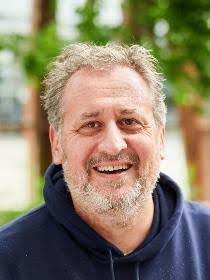
Design of sustainable polymeric products
Prof. Francesco Picchioni, University of Groningen, The Netherlands
CV
Francesco Picchioni, born in Italy in 1971, got his MSc (1996) and PhD (2000) degrees from the University of Pisa in Italy for works related to polymer blends, functionalization under the supervision of Prof. F. Ciardelli. After a postdoctoral position (2000-2002) at the Eindhoven University of Technology (TU/e), he joined the University of Groningen first as assistant- (2003-2008), then associate- (2008-2013) and full professor (2014-present). He is currently the chair of the Product Technology group. His research interests include polymer modification and blending with focus on novel materials for the circular economy.
Abstract
The societal ambition to become circular (in the Netherlands in 2050) has prompted in the last few decades many research activities aimed at providing solutions for polymer recycling. In this work, we will start by presenting some of our own work related to the design for recycling polymers. In particular, we will provide an extensive overview of our work on covalently adaptable network (CAN) as conceptual tool for the recycling of rubbers and thermosets. Many novel materials based on this concept will be illustrated in terms of their preparation, thermal and mechanical behaviour before and after recycling.
Subsequently, we will present some of our recent work focused on currently commercialized materials including rubbers, poly(vinyl chloride) and polyolefins. The current status of the corresponding technologies will be discussed and a few examples will be provided of polymeric products based on a substantial percentage of recycled materials.
_______________________________________________________________________________________
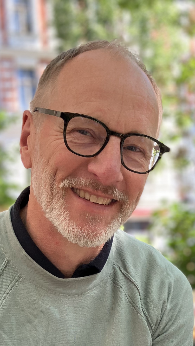
Membrane electrolysis: essential for chemicals; enabler for sustainable process and product development.
Mr. Hans Lammers, Nobian Industrial Chemicals B.V., The Netherlands
CV
Mr. Hans Lammers is Senior R&D expert Electrolysis and Membranes at Nobian Industrial Chemicals B.V. After his Bachelor Analytical Chemistry and Master Chemistry (University Utrecht), he continued his career at AkzoNobel in various R&D roles including Specialist in electrochemical membrane processes and R&D team leader membrane technology.
_______________________________________________________________________________________
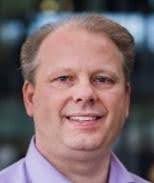
Induction heating and direct Joule heating in intensified chemical processes
Prof. Martin van Sint Annaland, Eindhoven University of Technology, The Netherlands
CV
After earning his PhD in Chemical Engineering at the University of Twente in 2000, van Sint Annaland joined the Fundamentals of Chemical Reaction Engineering research group there, starting as an Assistant Professor and later becoming an Associate Professor.
In 2020, he also became the Scientific Director of the post-master's course in Process and Product Design at the same university. His research focuses on developing innovative multi-functional reactors using advanced, experimentally validated models. Key areas include integrating reaction and separation processes (e.g., membrane reactors, chemical looping, and sorption-enhanced processes), dynamic heat exchange in reactors, and electrifying chemical reactors, particularly via methods like direct Joule heating and inductive heating.
Abstract:
Induction heating and direct Joule heating are advanced thermal techniques that enable the electrification of chemical industries, helping to reduce anthropogenic CO2 emissions by replacing fossil fuel combustion with renewable energy sources for heating. These methods hold promise for application in chemical processes to enhance overall energy efficiency and ensure precise temperature control. Induction heating uses electromagnetic fields to generate heat within inductive materials, allowing for rapid and efficient heating, which is essential for high-temperature reactions and processes requiring controlled environments. Joule heating, also known as resistive heating, generates heat by passing an electric current through a conductor or semiconductor. This technique can be used for direct heating of both conductive and non-conductive materials when combined with (semi-)conductive additives. In chemical reaction engineering, these heating methods support efficient catalytic processes, enable continuous flow reactors, and optimize energy use. They also offer scalability and automation potential, meeting industrial demands for sustainable and cost-effective chemical production. The integration of these heating techniques into chemical reactors represents a significant advancement toward electrified chemical engineering processes, such as CO2 capture, reverse water gas shift, methane reforming, and biomass and plastic pyrolysis. In this presentation, we will highlight our modelling and experimental studies in this field.
_______________________________________________________________________________________
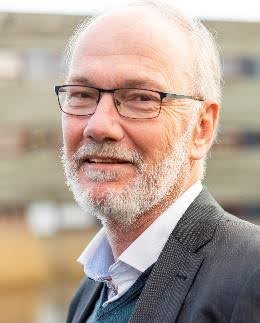
Without process innovation no protein transition
Dr. Peter de Jong, ISPT, The Netherlands
CV:
Peter de Jong is a chemical engineer by training and received his PhD degree at the Delft University of Technology. His professional career started with FrieslandCampina in 1986. In 1987, he joined NIZO food research and became a leading expert on optimization of international dairy/food processing with respect to product quality, costs and sustainability using computer simulation tools. In 2013 he became program director at the Institute of Sustainable Process Technology (ISPT), focusing on development of new technology (e.g. mild fractionation, drying) with consortia of large food companies. In 2014, he received a professorship in Dairy Process Technology at VHL University in Leeuwarden. At NIZO food research he is still active as a principal scientist on food processing. In 2021, he was appointed as program director of the so-called “Fascinating” national program, an open innovation program for realization of a circular agri-food system in the province of Groningen. Peter has an extensive network in the dairy industry and initiates new research projects to enhance the food production chain every year. Peter published 200+ scientific and technological papers and 100+ industrial reports.
_______________________________________________________________________________________
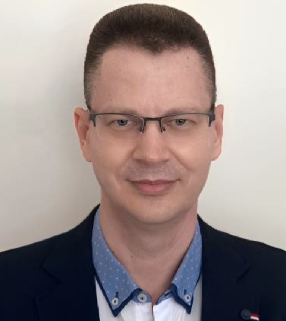
Process Systems Engineering perspectives and new horizons
Prof. Dr. Ir. Anton A. Kiss, Delft University of Technology, The Netherlands
CV:
Tony Kiss is a professor of chemical engineering at Delft University of Technology, and a visiting professor at University of Manchester.
He is a Fellow of IChemE and Royal Academy of Engineering, with over 25 years of academic and industrial experience. He worked for over a decade as a Senior Project Manager and RD&I Specialist at AkzoNobel Chemicals. Besides his key industrial role, he was also appointed as part-time professor at University of Twente. During the past decade, he carried out many research & industrial projects, supervised graduation projects, published over 25 textbooks, book chapters, and 100+ scientific articles in highly-ranked journals. For his pioneering research, he received the Royal Society Wolfson Research Merit Award for outstanding scientists, Recent Innovative Contribution in CAPE award for outstanding innovative contributions to recent advances in CAPE ideas, methods and/or tools, Hoogewerff Jongerenprijs (a very prestigious award recognizing the most promising young scientist in The Netherlands), the AkzoNobel Innovation Excellence Award (for the most successful industrial innovation), Pirkey Distinguished Lecturer in Chemical Engineering (University of Texas at Austin, USA), and CHEMCON Distinguished Speaker Award for innovators and science leaders (IIChE, New Delhi, India).
Abstract:
Process Systems Engineering (PSE) deals with methods and tools to support decision-making for the creation and operation of chemical supply chains, including the discovery, design, manufacturing, processing, and distribution of chemical products. In other words, PSE is about educated decision-making, at all levels and (size/time) scales, by understanding complex systems using a holistic view. This lecture aims to provide an informative industrial and academic perspective on PSE, from a personal viewpoint of the author – a seasoned professional with more than 25 years of combined industrial and academic experience. The main topics covered include: PSE in academic education vs industrial needs, PSE research vs industrial projects, personal perspectives, lessons learned in industry, global challenges and trends, professional skills, opportunities and new horizons for PSE.
| Last modified: | 30 September 2024 12.09 p.m. |
